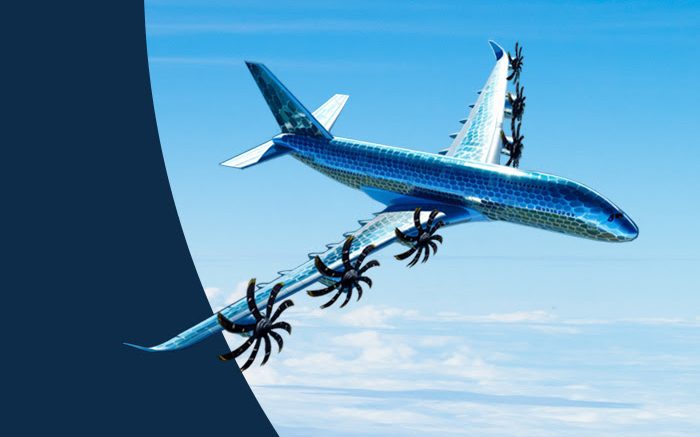Decarbonising long-haul flights – which currently account for over 50% of all aviation CO2 emissions from the EU27+UK area, despite making up only 10% of flights – is both a high priority and a massive challenge.
And almost 90% of these CO2 emissions are produced by widebody aircraft.
While sustainable aviation fuels (SAFs) and operational air traffic management (ATM) improvements offer a clear path to reducing emissions, here we assess whether game-changing technologies, such as batteries, fuel cells, hydrogen, methane, ammonia or solar energy, could make a difference – and if so, when.
We take a hypothetical widebody flying from Paris to Singapore to analyse how much time, energy and cost it would take to perform that flight, and what that would entail in technical terms, for each new technology.
We find that in each case it will take several decades before any of these technologies could be adapted to power a widebody flying long-distance.
Therefore, to decarbonise long-haul flights, it is of vital importance to make real progress now on other technological and operational solutions. This includes in particular a massive increase in SAF supply/usage and the need to move forward with fleet renewal – all of which, as we will be exploring in our next Think Paper, pose their own challenges.
For Raúl Medina, EUROCONTROL Director General, “Helping aviation achieve its challenging decarbonisation goals is a key priority for EUROCONTROL, and analytical studies like this play a key role in highlighting the challenges ahead – and indicating ways in which the sector can advance. This Think Paper shows how game-changing technologies have huge potential but, for now, are far from being able to make that decarbonisation breakthrough – which highlights the need in parallel to advance on SAF usage, fleet renewal and ATM improvements such as optimised trajectories.“
Source : EUROCONTROL





Be the first to comment on "New Think Paper: When can cutting-edge energies and technologies help meet the challenge of long-haul flight decarbonisation?"